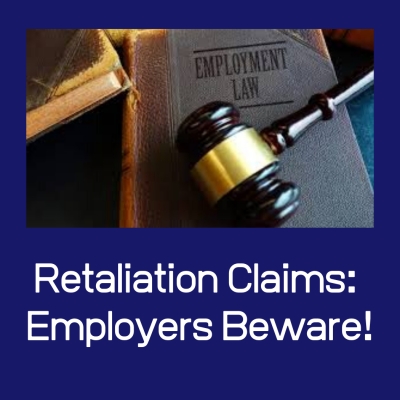Antheil Maslow & MacMinn is pleased to announce that Peter J. Smith has joined as a Partner of the firm. Peter Smith is an experienced and highly skilled business lawyer and trusted partner to his commercial and individual clients. Antheil Maslow & MacMinn was founded and has grown as a predominantly business legal service firm, and as such is well suited to Peter's sophisticated corporate practice and client base.
Peter has been solving problems and adding value for business owners for over 25 years with a practice focused on corporate law, business transactions, mergers and acquisitions, contracts, commercial finance, debtor/creditor relations, business disputes, non-profit organizations, real estate, and trusts and estates.
Peter counsels businesses involved in manufacturing, distribution, marketing, e-commerce, technology, health care, pharmaceutical research, professional services, real estate, construction and retail. In addition, he has experience with start-up ventures, family-owned businesses, limited liability companies and 501(c)(3) public charities. He also represents individuals and families in estate and business succession planning.
Most employers these days are aware of the many workplace claims an employee might bring, including allegations of discrimination on account of race, color, religion, sex, national origin, sexual orientation, pay, age, or disability. Among other claims are those brought under the Fair Labor Standards Act (minimum wage, overtime) and the Family Medical Leave Act.
Employers paradoxically seem less aware of a retaliation claim an employee may bring. Paradoxically, because as reported by the Equal Employment Opportunity Commission (“EEOC”-the federal agency responsible for enforcing laws prohibiting employment discrimination), retaliation claims constituted the highest percentage of all charges filed in its fiscal year 2019.
Moreover, as discussed below, retaliation claims, by which an employee can obtain the same remedies as discrimination claims, are often easier for an employee to prove.
A recent opinion by the United States Court of Appeals for the Third Circuit (covering Pennsylvania) illustrates what an employee must do to state a case for retaliation and how an employer might defend the action.
Partner
215.230.7500, ext. 134
psmith@ammlaw.com
Practice Groups:
Education:
- Temple University School of Law, J.D., cum laude
- Temple University, B. S., magna cum laude
Bar Admissions:
- Pennsylvania, U.S. District Court, Eastern District of Pennsylvania
Michael Mills, a Partner of the law firm of Antheil Maslow & MacMinn in Doylestown, Pennsylvania, and Elaine Yandrisevits, both of the firm’s estates & trusts practice group, presented an estate planning update at the Bucks County Bar Association on February 12th. The program focused on recent legislation passed in December, 2019 known as the SECURE Act. This far reaching bill has significant impact on retirement accounts. The CLE addressed how the SECURE Act affects the treatment of retirement account beneficiaries, including benefits left in trusts.
Michael Mills is a Partner of the firm, focusing in Estates & Trusts, Taxation and Corporate practice areas. Elaine Yandrisevits practices exclusively in the Estates and Trusts. Both are frequent speakers on estate & tax planning for continuing legal education and community organizations.
Medical Marijuana and Child Custody Cases in Pennsylvania
Written by Mariam IbrahimIn Pennsylvania, the paramount concern in a child custody proceeding is the best interest of the child. In determining the best interest of the child, courts engage in a comprehensive analysis of the factors outlined in 23 Pa.C.S.A. § 5328. Pennsylvania Health and Safety Statute §10231.2013 states that the use of medical marijuana in accordance with state laws is not a consideration by itself in a custody case. The custody laws have not been amended to address the issue or make similar limitations regarding the use of medical marijuana by a parent.
On December 18, 2019, however, the Superior Court of Pennsylvania issued an opinion affirming an April 5, 2019 Schuylkill County Court of Common Pleas decision limiting self-represented Father’s contact with son, age 10, to periods of supervised physical custody. The case involves a child born in May of 2009 to Mother and Father, both who have struggled with substance abuse. The court noted that Father’s recreational use of marijuana has been a recurring issue throughout the custody litigation. Father obtained a medical marijuana license when the parties were living in Georgia. At the time of the hearing, the child’s maternal grandparents had primary physical custody of the child. The trial court had awarded maternal grandparents primary physical custody of the child adding a provision that conditionally extinguished Father’s supervised custodial time “upon Father’s willingness to demonstrate sobriety and continued abstinence.”
Father argued that in light of his license to use medical marijuana as a mechanism to manage his wrist pain, the trial court should not weigh the fact of his medical use against him. The trial court rejected Father’s argument and reinstated the prior custody arrangement and the hair-follicle-testing condition. The trial court reasoned that it is unknown to the Court what effect, if any, Father’s alleged medical condition and use of marijuana, whether prescribed or used recreationally, may have on his ability to care for a child. Father appealed, and the Pennsylvania Superior Court affirmed the trial court’s decision.
The Superior Court noted that the Medical Marijuana Act prohibits the fact-finder from penalizing a parent simply for using medical marijuana. However, in the instant case, the trial court concluded after a consideration of all of the best-interest factors and the evidence presented, that it was not in the child’s best interests to expand Father’s supervised partial custody to unsupervised overnight custody without requiring Father to continue to submit to the previously-ordered drug screening regimen. The Medical Marijuana Act does not preclude the court from making relevant findings concerning effective marijuana use, medical or recreational, on parent’s ability to care for a child. The Superior Court noted that the fact finder should consider not only the parent’s history of drug and alcohol use, but also the parent’s mental health and physical condition that might require the parent to rely on prescribed medication to subdue that pain. The Court concluded that a parent’s history of drug and alcohol abuse, including a parent’s legal use of any substance, should be considered in determining the child’s best interest.
New Change to Pennsylvania Inheritance Tax Law Takes Effect
Written by Elaine T. YandrisevitsOn January 1, 2020, a new change to Pennsylvania’s Inheritance Tax Law became effective for decedents who pass away as of that date and leave assets to children under the age of twenty-one (21). Under the new law, inheritances from parents to children under the age of 21 will now be taxed at a zero percent rate, effectively passing inheritance tax-free.
Pennsylvania is one of six states that assesses an inheritance tax on the transfer of assets from a decedent to his or her heirs. Pennsylvania’s Inheritance Tax is applied to a decedent’s probate and nonprobate property, including real property based in Pennsylvania, cash accounts, IRAs, 401ks, and joint property. Out of state real property and life insurance proceeds are exempt from Pennsylvania Inheritance Tax.
The rate of Inheritance Tax depends on the relationship between the decedent and the recipient of the property. Under Pennsylvania’s prior Inheritance Tax law, transfers to all descendants, including children, stepchildren, and grandchildren, were taxed at a 4.5% rate. Now, with the new Inheritance Tax law becoming effective, transfers from a parent or stepparent to a child (including an adoptive child) or stepchild who is under the age of 21 on the date of the parent or stepparent’s death will be taxed at a zero percent rate. It is important to note that this new law only applies to transfers from a parent or stepparent to a child under the age of 21; transfers to all other descendants (including from grandparents to grandchildren under the age of 21) will continue to be taxed at the 4.5% rate.
As for other Inheritance Tax rates, they remain unchanged, so: transfers from a decedent to his or her surviving spouse are taxed at a zero percent rate, while transfers to siblings are taxed at 12%. Transfers to all other individuals are taxed at a rate of 15%. Finally, any distributions left to a charity are exempt from Pennsylvania Inheritance Tax.
For Children of Divorced or Separated Parents, Your Generosity and Flexibility Makes for a Happier Holiday
Written by Elizabeth J. FinemanThe holiday season can be a stressful time of the year, especially for children whose parents have recently separated or have a tense custody arrangement. I often remind my clients to keep in mind that the children have not asked to be put in this position, and parents should do all they can to ensure a happy and stress-free holiday for their children. After all, the children should be the focus in the holiday season. Here are some tips to help reduce tensions for your children over the holiday season .
1. Make it clear to your children that you are genuinely happy for them to spend time with the other parent.
2. Help them make cards and gifts or take them out to buy something for the other parent. It doesn’t have to be extravagant, but this small gesture will go a long way in bringing happiness to your children, and hopefully foster more civility with their other parent. The children will be excited that they have a gift to give, and hopefully the other parent will reciprocate in the future.
3. If your children are having fun at the other parent’s house, spending time with family they haven’t seen in some time, and want extra time with that family, consider allowing them to spend a little extra time before you pick them up, especially if your plans are flexible.
4. Don’t cancel Christmas or Hanukkah. Some parents decide that because they are not going to have their children at a specific time on the holiday, they are not going to celebrate this year. The only ones hurt with this approach are your children, who – after all - did not ask to be subject to a custody order. Make it clear to your children that you were excited to celebrate with them, and that you will be celebrating when they are back at your house. That will also give them peace of mind to enjoy the holiday more when they are with the other parent free of guilt and worry that you are sitting home alone and sad since they are not there with you.
5. Make sure you look at the custody order in advance. If you have any questions make sure to have those questions answered by your attorney or resolved in a discussion with the other parent well in advance to avoid disputes on the eve of the holiday .
If your children see that you are happy to celebrate the holiday, no matter what the schedule is, that will allow them to more fully enjoy the holiday as well.
Wish you and your family a very happy holiday season.
Elizabeth Fineman, Partner and Family Law attorney at Antheil Maslow & MacMinn in Doylestown, will co-present “Family Law Roundup” on Wednesday, December 18th at the Bucks County Bar Association’s Marathon Continuing Legal Education Day. The program covers important Family Law rules, cases and legislation from 2019. Ms. Fineman will present along with Hillary Moonay, her Co-chair of the Family Law Section of the Bar Association.
Elizabeth Fineman practices exclusively in Family Law with extensive experience in complex high net worth individuals with complex assets, income and tax issues. The Bucks County Bar Association is one of the oldest and most active bar associations in the United States. Located in Doylestown, Pennsylvania, the Bucks County Bar Association is dedicated to providing support and fellowship for the advancement of the legal profession.
Estate Planning attorney Elaine Yandrisevits the firm's Estates and Trusts practice group spoke on Special Needs Trusts at a program hosted by Firstrust Financial Resources. The November 6th program, entitled “Understanding Government Benefits for a Special Needs Loved One” also featured speakers Jerel Ruttenberg & Brian C. Smith, of Firstrust Financial Resources, and was focused on best approaches to financial and estate planning for a family member with special needs, including the uses of Special Needs Trusts and ABLE Accounts.
Elaine practices exclusively in the Estates and Trusts department at Antheil Maslow & MacMinn in Doylestown, Pennsylvania. She focuses her practice on estate planning, trusts and estate administration and assists with fiduciary litigation matters. With a great deal of practical experience with special needs trust planning and guardianships, Elaine is a frequent speaker on estate planning, estate administration, and special needs planning for continuing legal education and community organizations.
The Spark Bowl at Delaware Valley University: A Business Lawyer’s on Take Entrepreneurship
Written by Christopher D. WagnerAs a business lawyer, I have spent years counseling small to mid-sized companies across a wide range of industries. I have advised clients on routine to complex business legal issues that arise during the start-up stage through operation and growth stages, and have structured many exit strategies and created successful succession plans in various ownership documents. What I love best about providing sound legal guidance to business owners through the life cycle of their business is helping them solve issues that arise both from a legal perspective and also from a financial perspective. Helping clients navigate through contractual, employment, finance, IP protection, and other daily issues so they can focus on achieving their goals of growth, maximization of profits, and sustainability, all while minimizing their potential for risk and exposure is a vital objective in my practice.
I have recently been invited to participate for the next several weeks as an advisor in an exciting new local event – The Spark Bowl. Co-sponsored by Delaware Valley University, it’s Small Business and Entrepreneurship Center and the Central Bucks Chamber of Commerce, this event is a local competition aimed at fostering innovation, growth, and entrepreneurship. At the First Annual Spark Bowl event to be held on December 11th, students and local entrepreneurs in and around Bucks County will “pitch” their businesses plans to Spark’s judges, who will select a winner who will receive prizes and benefits to include monetary funding as well as access to expert advisors. The contest will be judged by experienced investors who have a desire to support innovation and economic growth and prosperity within the local community. As part of DelVal’s experiential learning program, DVU student teams will work with final contestants to prepare for the competition under the guidance of DelVal faculty and SBEC advisors. Professor William Viel of DVU’s Business and Information Management Department is the Director of the SBEC. It is quite a valuable resource to this community to have such an incubator right here in Central Bucks. Please click here to learn more about The Spark Bowl at Delaware Valley University.
After many years of working with business owners, some who were successful, and some who were not, it seems evident that the best predicator of sustainable business growth and success is: planning by asking the right questions up-front; creating detailed business plans and product or service models; determining the expected demand for their product or service in a low or highly competitive market; understanding both traditional and non-traditional financing alternatives; putting together the right team of professionals to help them produce, deliver and promote their business and its products/services; dealing with operational challenges and various levels of legal compliance properly, all while being willing to assess weaknesses and promote strengths.
The Spark Bowl has inspired me to remind my clients to think about why they are doing what they are doing, as they work through the day-to-day challenges (legal and otherwise) of operating and sustaining a business they built and love.
Good Luck to all the participants on December 11th!










